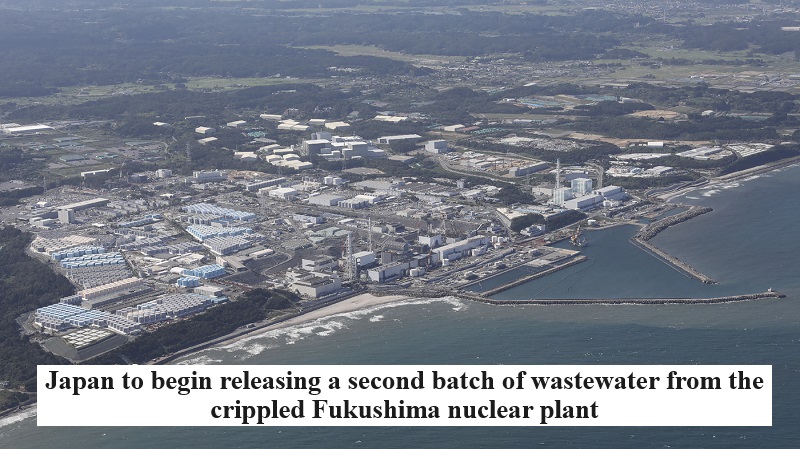
Japan is set to commence the release of a second batch of wastewater from the crippled Fukushima nuclear plant next week, according to its operator. This move has sparked concerns and objections from neighboring countries, particularly China, as it did when the first release began in August.
On August 24, Japan initiated the discharge of some of the 1.34 million tonnes of wastewater that has accumulated since the Fukushima facility was severely damaged by a tsunami in 2011.
TEPCO, the operator of the Fukushima plant, announced on Thursday that “the inspections following the first release have been completed… The (second) discharge will start on October 5.”
The first phase of the release, which ended on September 11, involved around 7,800 tonnes of water being discharged into the Pacific Ocean, with plans for a total release equivalent to more than 500 Olympic swimming pools. TEPCO has stated that the water has been thoroughly filtered to remove all radioactive elements except tritium, which is within safe levels. This assertion is supported by the United Nations atomic agency.
China responded to the initial release by banning all Japanese seafood imports, despite Japan’s assurances that the operation poses no environmental risk. Russia is reportedly considering a similar seafood ban.
The release of wastewater is part of a long-term strategy to create space for the eventual removal of highly dangerous radioactive fuel and debris from the damaged Fukushima reactors. However, the release is expected to take decades to complete.
China and other countries have criticized Japan for using the ocean as a disposal site for the wastewater, with accusations of Japan treating it like a “sewer.” Prime Minister Manasseh Sogavare of the Solomon Islands, who has close ties with Beijing, echoed these sentiments at the United Nations last week.
China’s ban on Japanese seafood imports has not deterred its fishing vessels from reportedly continuing to catch fish in the same areas off Japan where Japanese vessels operate. The US ambassador to Japan, Rahm Emanuel, recently posted photos of Chinese fishing boats operating off Japan’s coast in defiance of the seafood embargo.
Japan has affirmed its commitment to monitoring tritium levels and providing transparent information to the public based on scientific evidence throughout the wastewater release process.

Post Your Comments